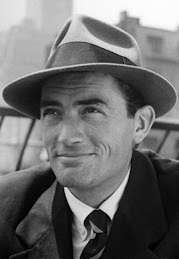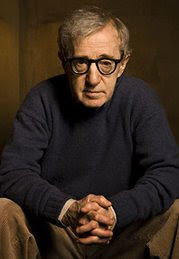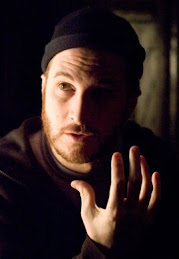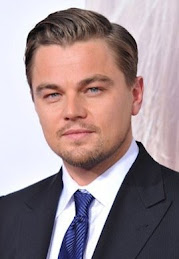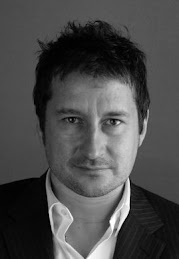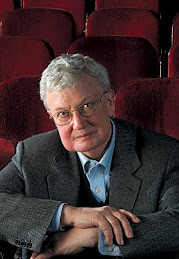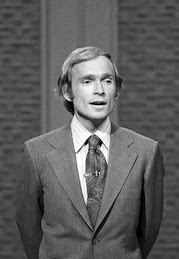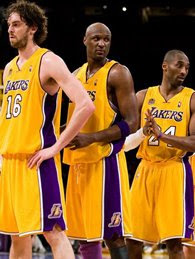I've been asked a handful of questions for the past few weeks, all of which sound quite familiar. In the end of Inception (2010), does the top keep spinning or does it fall down? Is Cobb still in a dream? Is Cobb back in reality? Is all of Inception a dream?
Christopher Nolan has presented his audience with a puzzle, and he's asking us to think outside the box for this one. Inception is a maze, in and of itself, and it seems it's too complex for some viewers. Inception is making us think and perhaps that's a bad thing for some people. If Inception was too confusing at first glance, perhaps a better-suited film would be Avatar (2009)... or The Blind Side (2009).

First of all, I can't understand the comparison between Inception and Shutter Island (2010). I suppose it's because both films star Leonardo DiCaprio, but that's a horrible reason. I suppose, for the same reason, we could compare Inception to The Departed (2006). Perhaps, it's because both films leave us with an open ending and asks the audience to draw their own conclusions... but then again, for the same reason, we could compare Inception to Memento (2000).
Leonardo DiCaprio believes that both films deal with the "dreamworld and... some sort of cathartic journey..." but declares "that’s about where the similarities ended." Inception should never be compared with Shutter Island, and those who do compare them, seem to be interested with what's on the surface, because these films have nothing else in common, in themes or otherwise.
Leonardo DiCaprio believes that both films deal with the "dreamworld and... some sort of cathartic journey..." but declares "that’s about where the similarities ended." Inception should never be compared with Shutter Island, and those who do compare them, seem to be interested with what's on the surface, because these films have nothing else in common, in themes or otherwise.
In fact – and this is where I'll step into some analysis – while several critics have compared the film to science fiction thrillers and action adventures like The Matrix (1999) and James Bond, Leonardo DiCaprio claims he based his performance on Christopher Nolan, and believes Inception is more in line with Federico Fellini's 8½ (1963). I think that's an immense clue, because Inception could simply be a film about the making of a film.
Devin Faraci explains it all better than I can, but it’s not too farfetched. Cobb is Christopher Nolan, or the filmmaker, who is at the helm of this film/job. Arthur is the Point Man, or the producer, who assists with the research. Ariadne is the Architect, or the screenwriter, who designs/writes their dream/film. Eames is the Forger, or the actor, who manipulates himself to take the physical form of another person. Yusuf is the Chemist, or the technical crew member behind the scenes responsible for their safety. Saito is the Tourist, or the financier, who employs Cobb and runs the show. Robert Fischer is the Mark, or the audience, who is being incepted/inspired by an idea. Mal is the Shade, or the impulse of an auteur, who brings herself into the dreams/films.
Christopher Nolan knows this quite well, and it's a clever device for this theory. It's an auteur who brings his personality and interests to a film, which allows audiences to recognize their work. It's seen in the films of all auteur filmmakers, from Ingmar Bergman to Christopher Nolan, himself. In this film, however, we are told through Mal's character (and rightfully so) that this auteurist impulse is not always a positive characteristic. In this theory, we look to ourselves for the meaning of the film. Perhaps, Christopher Nolan is performing inception on us, by either inspiring us with an idea (of creativity) or by driving us all insane about whether the top keeps spinning or if it falls down.

Is all of Inception a dream? Is Cobb asleep, riddled with remorse, as inception is being performed on him by somebody else? It’s quite clear what happens by the end of the film. Cobb is able to move on and is finally reunited with his children – and regardless of whether the ending is a dream or reality – his character experiences this transformation. So, it is logical then, to question if Cobb was the subject of inception. Perhaps Miles, his father-in-law, is responsible for performing inception on Cobb with the hopes that he finally forgives himself. Cobb is clearly filled with paranoia – it has become impossible for him to distinguish reality from the dream world – as he sits with a loaded gun pointed at his head, ready to kill himself to wake up from what might be a dream. Miles tells Cobb to “come back to reality” and perhaps this hints at his motive. Is Cobb the subject of inception, to allow him to forgive himself and finally live his life?
If all of Inception is a dream, that doesn’t necessarily mean that there is no meaning and emotional satisfaction for the audience. If Cobb’s team is simply a projection of himself, the entire film, as a result, is make-believe. So, why do we care, and why invest ourselves in a film that is all a dream? Well, this theory, I believe, connects to the previous one. Inception is a film about dream sharing, because these characters are able to fall asleep and enter each other’s dreams. Christopher Nolan, however, could be referencing films once again, because cinema is the power of sharing dreams. It’s what we do every time we watch a film – we’re in a dark theater, with strangers, and we all share dreams and become invested in the lives of characters that we know are fictional. If Inception is all a dream and everything is make-believe, and there’s no reason to emotionally attach ourselves to characters whose lives are not at stake, then why do we sympathize with other characters in other films, when we know, for a fact, that everything on screen is fabricated? It’s the same thing, isn’t it?
I do realize, however, that some people are wishful for a happy ending. Cobb appears to be reunited with his children and that’s what they want to believe. In fact, there are several facts that support this belief. I know for a fact that many people were focused on the clothing of the children. Cobb was forced to leave his children and flee the country, and this is the scene that he replays in his head when he sees his children. In this memory, they are playing with their backs to their father and they are always wearing the same clothing that he last saw them in. So, this brings up a key question. If there clothing doesn’t change throughout the film, are their clothes different in the final scene? If it’s the same clothing, does this mean that Cobb is still in a dream? I would assume so, and there are conflicting thoughts about the clothing of the children. I can, however, put your mind at ease because the children’s clothing in the final scene is different. In fact, the costume designer for the film, Jeffrey Kurland, says so himself when he states that "the children's clothing is different in the final scene... look again." If the clothing is different, which it is, this could mean that Cobb is, in fact, back in reality.
In addition, there is another aspect of the costume design that might suggest that Cobb is back in reality. I believe Cobb's wedding ring holds some significance, because it’s missing in quite a few scenes. I believe that this was a purposeful act from the filmmakers and it serves as a clue for the ending of the film. In all scenes that are from the dream world, Cobb is wearing his wedding ring. In all scenes that are from the real world, Cobb is not wearing his wedding ring. In the final scene, when Cobb is reunited with his children, Cobb is not wearing his wedding ring, which further suggests that he is, in fact, back in reality.
If this holds true, this could mean that Cobb drowns in the van after not receiving is kicks, and Saito dies in Level 3 from his gunshot wound. Saito enters Limbo and Cobb follows him, several minutes later, which is why several decades have passed. It’s impossible for you to keep track of reality in Limbo because your brain scrambles – years pass by in minutes and so on. Saito can only leave Limbo if he can realize he is in a dream and kill himself, but this is impossible to happen on its own. Cobb enters Limbo and is taken to Saito, which cause Saito to realize that he has been trapped in Limbo. Saito recognizes Cobb and his totem, which serve as his wake-up call. If Saito kills Cobb then himself, he should wake up on the airplane in time to return to Los Angeles. I suppose the question here is if Saito kills Cobb then himself, will they return back to reality? Is it possible to kill yourself in Limbo and wake up despite the heavy sedation? I believe this is impossible to answer because that’s the ambiguity in the film.

Christopher Nolan has constructed a film that can deal with all these theories, but it’s also possible that the main focus of the film is, in fact, in its climax. It’s all a question about the spinning top, but Cobb’s totem might not even hold a true purpose. It’s made clear that a totem is unique to its owner, because only they know it’s true weight and function. Cobb’s totem, however, used to belong to his wife, which should mean that it wouldn’t work for him. I believe this could very well be misdirection from Christopher Nolan, in an effort to shift the audience’s attention to such a small, inanimate object, that wouldn’t be deciding factor if Cobb were still in a dream or back in reality.
So, please, stop asking me whether the top keeps spinning or if it falls down. It’s impossible to answer because the only person who knows that answer is Christopher Nolan. In addition, it doesn’t matter whether the top wobbles or not because the film cuts to black before we can see what happens. In fact, it doesn’t even matter, because that’s not the point of the film.
Cobb is finally reunited with his children and has freed himself of the guilt over his wife, and is no longer in fear about distinguishing between reality and the dream world. For this reason, he no longer waits to see if the top will keep spinning or if it will fall down. Cobb lets himself see the faces of his children, and whether this is a dream or reality, this is where he wants to be.


